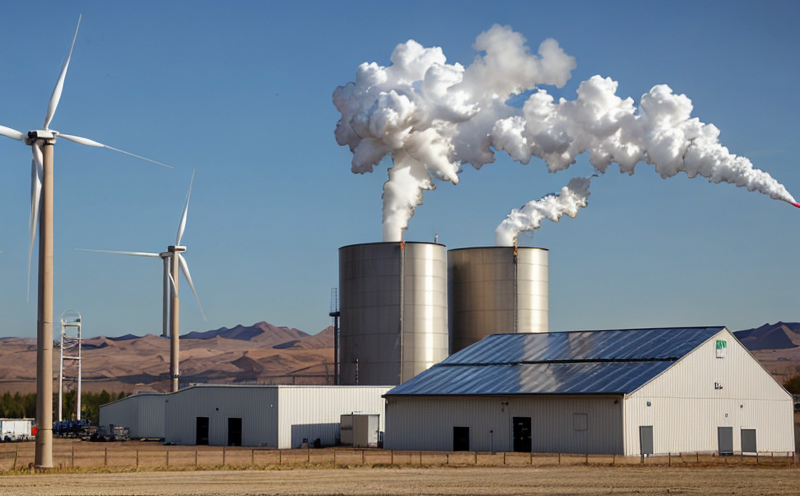ASTM E2742 Life Cycle Assessment for Energy System Impact Testing
The ASTM E2742 standard provides a robust framework for conducting life cycle assessments (LCAs) on energy systems. This comprehensive approach helps stakeholders understand the environmental impacts associated with all stages of an energy system's lifecycle, from raw material extraction and processing to manufacturing, distribution, installation, operation, maintenance, dismantling, and disposal.
By employing this methodology, organizations can make informed decisions about sustainable practices that minimize adverse effects on human health and the environment. The LCA process allows companies to identify areas where improvements are needed and implement strategies aimed at reducing negative impacts while enhancing resource efficiency throughout their operations.
The ASTM E2742 standard mandates detailed documentation of every stage involved in an energy system's lifecycle, ensuring transparency and traceability. This document serves as a valuable tool for internal teams responsible for monitoring compliance with regulatory requirements and external stakeholders seeking assurance regarding the environmental performance of products or services offered by those entities.
Implementing ASTM E2742 LCA involves several key steps including scope definition, inventory analysis, normalization, impact assessment, interpretation, and presentation. Scope defines what boundaries will be considered within the study; inventory analysis collects data on inputs and outputs throughout each phase of production; normalization adjusts values so they can be compared fairly across different categories or processes; impact assessment evaluates potential environmental consequences based on specified criteria; interpretation summarizes findings into meaningful insights; finally, results are presented clearly in reports intended for various audiences.
For effective implementation of ASTM E2742 LCA, it is essential to engage multidisciplinary teams comprising experts from diverse fields such as engineering, chemistry, biology, economics, sociology, and law. These professionals bring unique perspectives that contribute significantly towards developing accurate and reliable assessments.
One notable application of ASTM E2742 LCA within the energy sector involves evaluating renewable sources like solar power plants or wind farms. Such evaluations help determine whether these initiatives truly reduce greenhouse gas emissions compared to traditional fossil fuel-based alternatives over their entire lifecycle. Another area where this methodology proves beneficial is assessing hybrid systems combining various types of generation technologies in order to optimize overall efficiency and sustainability.
- Identifying critical stages during which improvements could lead to substantial reductions in environmental footprint
- Comparing different design options or operational strategies against established benchmarks
- Evaluating supply chain impacts, including sourcing raw materials sustainably and reducing waste generation





